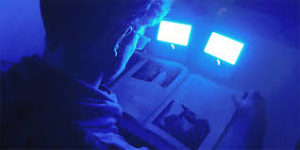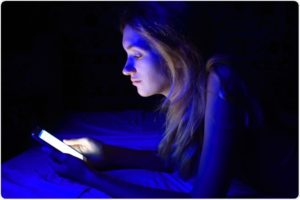For athletes, the health of the body is crucial to their peak performance. Among other practices, athletes maintain their optimum health by getting enough sleep. While blue light from the sun boosts your alertness, endurance, and mental functioning, artificial blue light is a totally different ball game. Blue light from digital devices is a hindrance to getting enough and restful sleep. It also leads to other health issues like eye problems that will keep you off the field as you recuperate or take you off it permanently. As an athlete, you have to be careful not to expose yourself to excess blue light especially at night to keep your performance at its best. Here, you’ll find out whether blue light is good for your performance or not.
How Blue Light Affects Your Performance
Sleep and performance are intertwined and so getting enough sleep means you’ll be better on the track and not getting enough sleep means you’ll perform dismally. Sleep recharges your energy levels, helps speed up the healing of injuries, improves coordination, boosts immunity, and elevates your cognitive functions like moods and alertness. Blue light primarily affects your performance by messing with your sleep patterns.
How Blue Light Affects Sleep
The sun’s natural blue light is what regulates the body’s circadian rhythm or internal clock. The eye’s retina has photoreceptors that are very sensitive to blue light and the absence or presence of blue light triggers the sending of signals to the brain to either induce sleep or waking up.
When there’s no sunlight, the body releases melatonin, a hormone that induces the body to sleep by lowering its temperature. The process is gradual since it takes time for the body to wind down. It starts in the evening as it starts to get dark and culminates when you finally fall asleep.
When the day breaks, the blue rays of the sun find their way to the photoreceptors in your retina and a signal to cease melatonin production is sent to the brain. Your body’s temperature rises and you start to wake up.
Using digital devices at night disrupts this natural cycle. Your brain is programmed to stay awake whenever there’s blue light so it responds accordingly when you are exposed to blue light at night. It assumes that it’s daytime so it keeps you wide awake. By the time you finish using your computer or smartphone, the body has yet to start winding down so it will take you a while to finally fall asleep. If this happens repeatedly, it extends your sleep-wake cycle past the ideal 24 hours so you develop insomnia.
Blue light does not only result in getting fewer hours of sleep but also leads to restless sleep with a lot of tossing and episodes of startling awake. Restless sleep will make you wake up still feeling exhausted or even more exhausted and this affects our performance, motivation, and energy levels.
What are the Effects of Poor Sleep on Performance?
Poor sleep lead to the development of health conditions such as obesity, some types of cancer, diabetes, cardiovascular diseases, and depression. An athlete cannot continue to compete if they develop any of these lifestyle conditions.
For athletes, lack of sufficient sleep due to overexposure to blue light depletes their energy levels, prevents the quick repair of injured muscles or joints, and increases the risk of developing depression which interferes with motivation and mental focus.
What Can You Do to Reduce Blue Light Exposure?
When you’re not training hard on the track, you probably enjoy sitting back and catching up on the latest Netflix series. There are a number of ways to block harmful blue light for athletes to ensure they get enough sleep and stay in tip-top shape:
Blue Light Apps
The modern smartphones, tablets, laptops, and desktops come with an in-built night mode that is designed to filter out blue light from the display of your screen. When turned on, they give off an amber tinge which may be a disadvantage if you’re doing work like design since it distorts images.
Screen Protectors
They are physical filters that are fitted on the screens of smartphones, tablets, or computers. They are designed to block or absorb all or partial blue light from the display screens. They are usually clear so you don’t have to worry about not seeing all the colours clearly.
Blue Light Glasses
This is eyewear with lenses that filter out blue light. They are especially effective in preventing blue light from LED bulbs and the backlight of your computer doesn’t reach your eyes.
The effect of blue light on athletes cannot be ignored since it affects the very thing that they depend on for their livelihood. Get your blue light filtering product today and you will notice the positive impact on your performance within no time.

